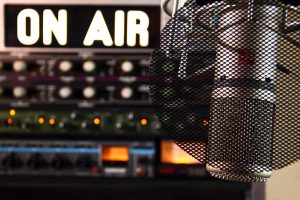Here are several fundamental elements describing how radio contributes to shaping public opinion.
1) Mass Communication:
Radio has been a mass medium since its inception, allowing it to reach a broad audience simultaneously. By broadcasting news, opinions, and other content, radio stations have the power to disseminate information to a large number of people, thereby shaping public opinion.
2) News and Current Affairs:
Radio stations serve as important sources of news and current affairs. Through news bulletins, talk shows, interviews, and panel discussions, radio programs can present information, analysis, and different perspectives on various issues. This coverage can significantly influence public opinion by shaping how individuals perceive and understand events and topics.

3) Accessibility and Portability:
One of radio’s strengths is its accessibility and portability. Radios are widely available, relatively affordable, and do not require an internet connection. This accessibility allows people from different socio-economic backgrounds and geographical locations to tune in, ensuring a diverse range of listeners can be influenced by the content broadcast.
4) Emotional Connection:
Radio has a unique ability to establish an emotional connection with its audience. The human voice and the use of music, sound effects, and storytelling can create an intimate and engaging experience. This emotional connection can contribute to the persuasive power of radio and make it an effective medium for influencing public opinion.
5) Targeted Programming:
Radio stations often cater to specific demographics, interests, or communities. By tailoring programming to particular groups, radio can have a more targeted influence on public opinion. For example, radio stations may focus on health, education, politics, sports, culture, or specific social issues, effectively shaping opinions within those domains.

6) Call-In Shows and Public Dialogue:
Many radio programs include call-in segments or interactive features that encourage audience participation. These platforms provide an opportunity for listeners to express their opinions, engage in discussions with hosts and other callers, and have their voices heard. Such dialogue can contribute to the formation and expression of public opinion.
7) Political Influence:
Radio has historically been used as a powerful tool for political propaganda and influencing elections. Radio broadcasts can support or criticize political candidates, parties, or ideologies, and influence public perception of these entities. Political campaigns often use radio advertising to reach potential voters and shape their opinions.
It’s important to note that while radio can be influential, public opinion is shaped by a combination of factors, including personal experiences, social interactions, other media sources, and individual critical thinking. While Pakistan is getting ready for General Elections across the country soon, Political parties can use this important medium of communication as the impact of radio on public opinion remains important, but can vary depending on cultural, political, and technological factors in different regions and time periods.

